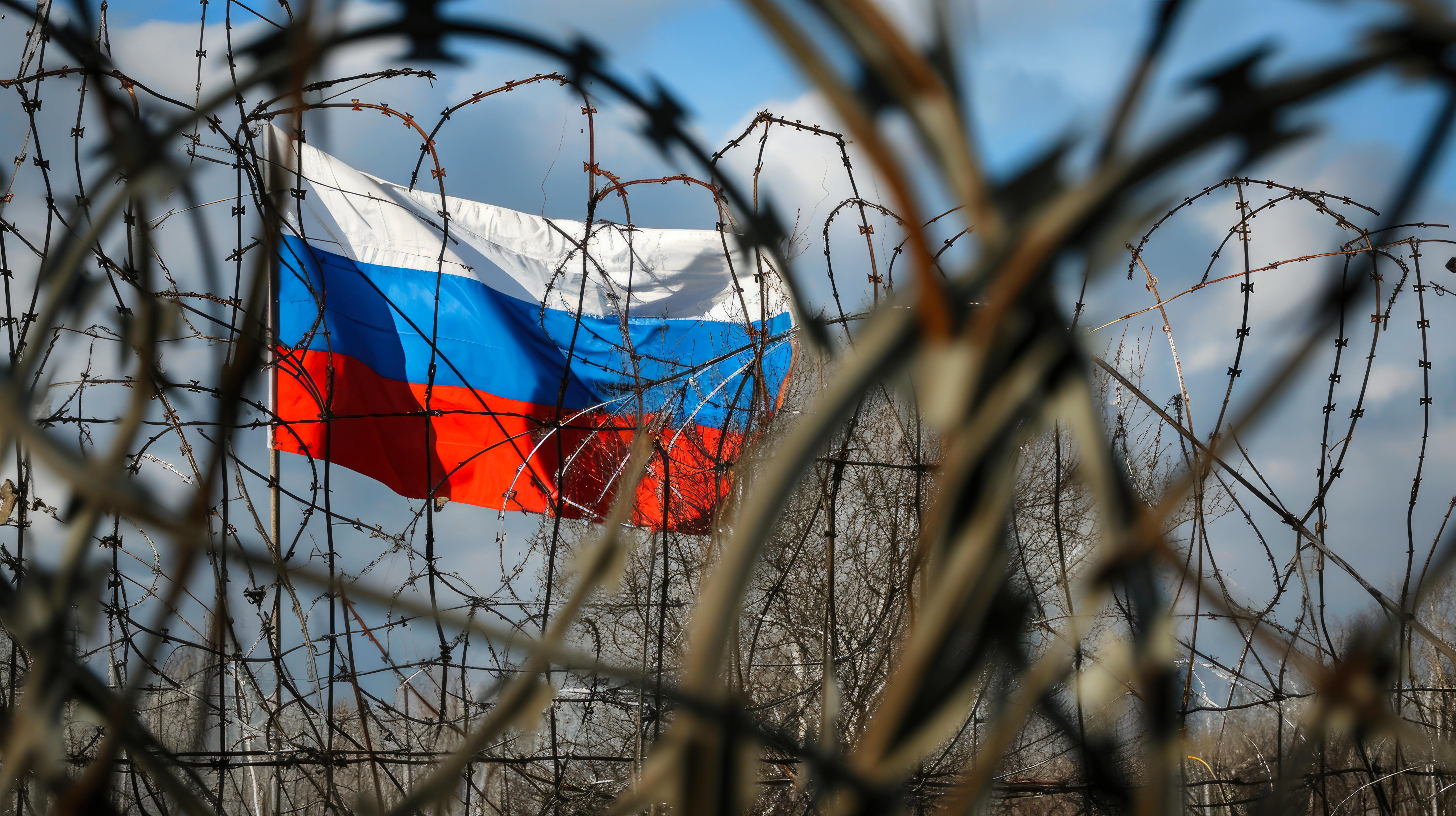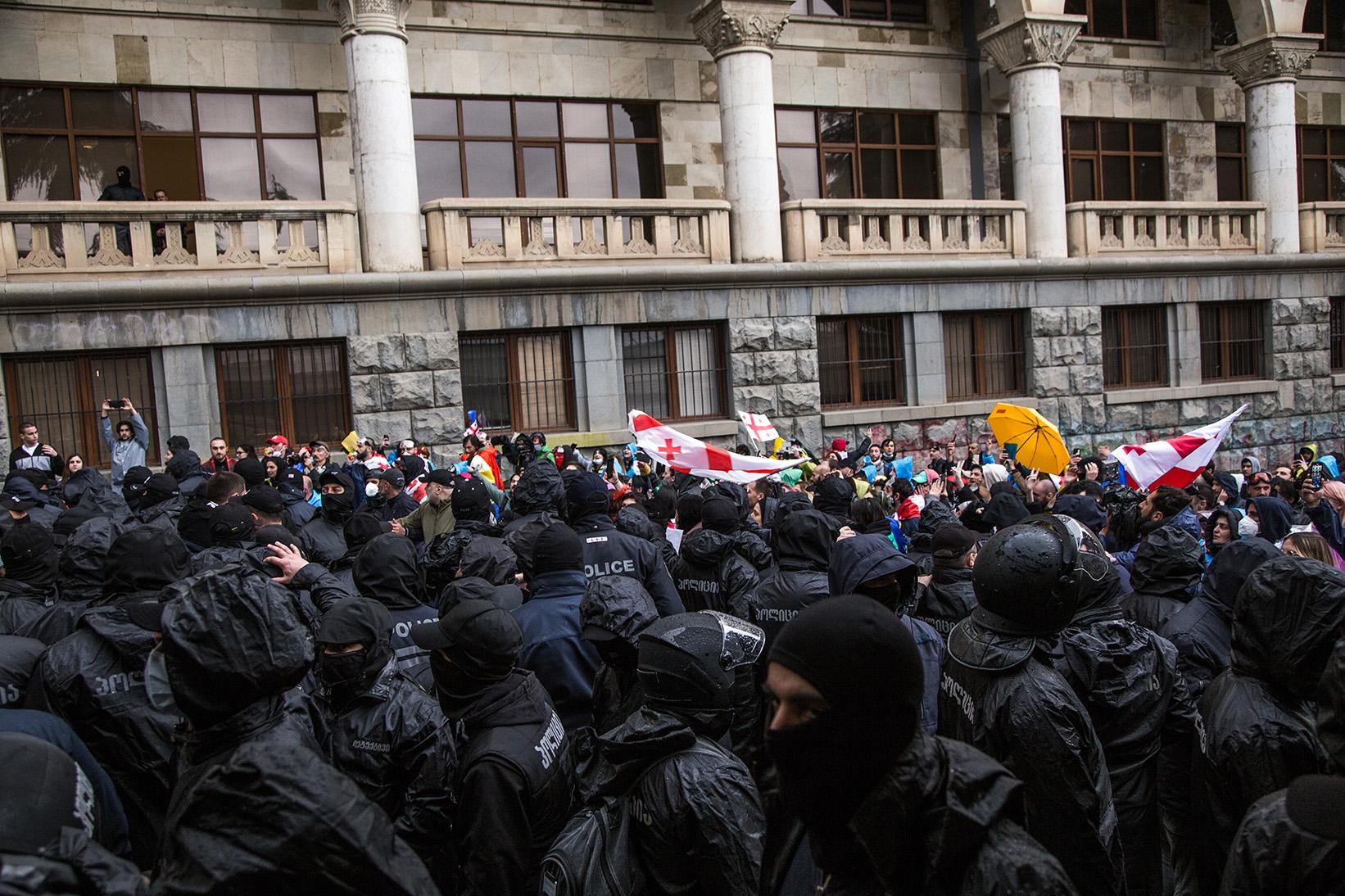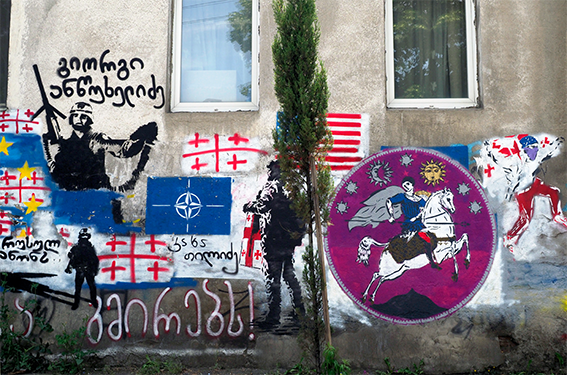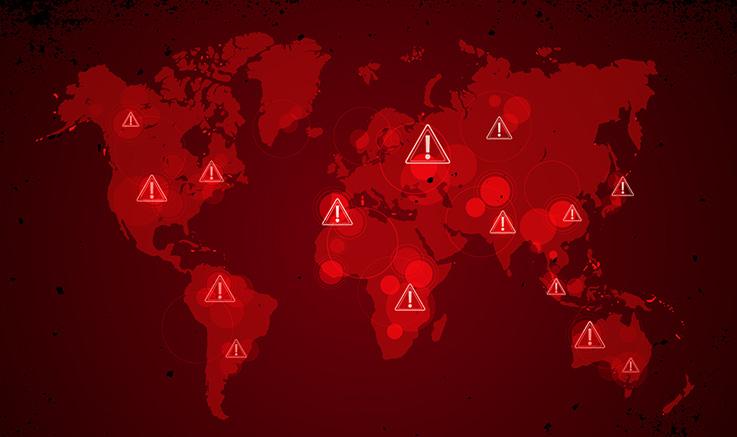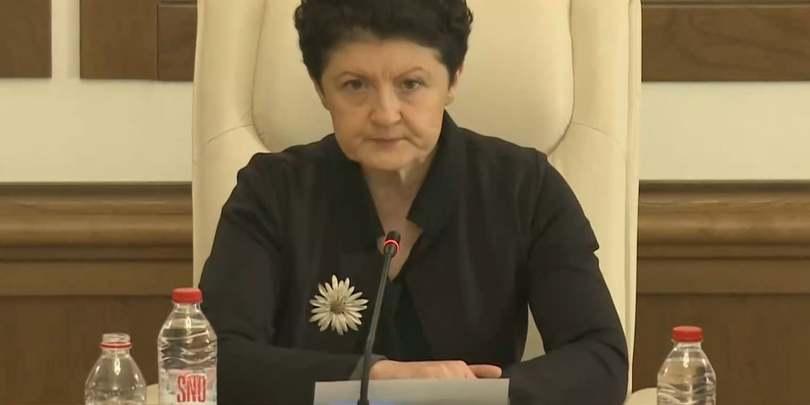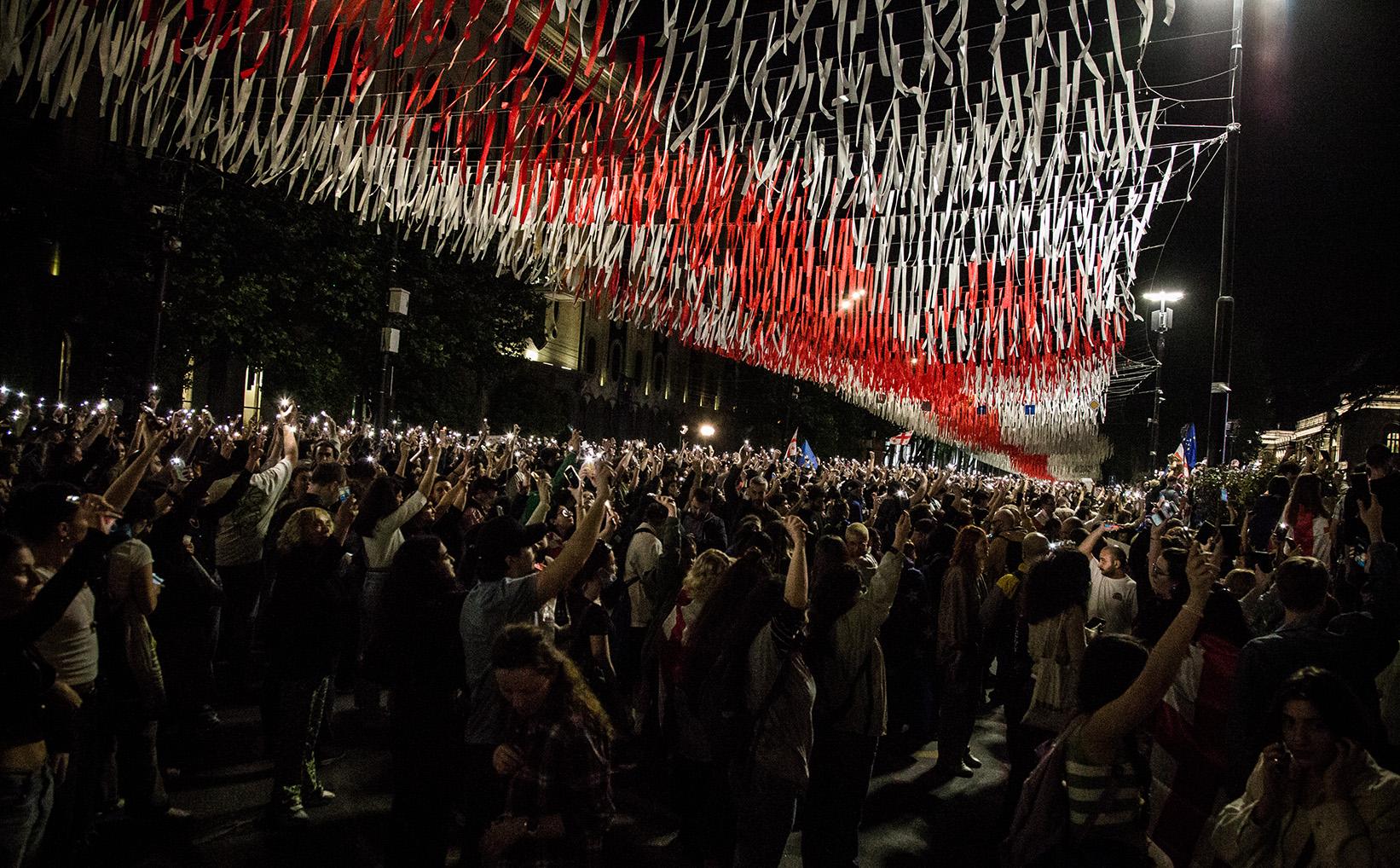Author : Vasil Jijiashvili

In its thirteenth year in power, the Georgian Dream has successfully subjugated all major democratic institutions. In Freedom House’s Freedom in the World Index, Georgia’s score was 64 in 2017 and 58 in 2024. According to the same organisation’s Democracy Quality Index, Georgia’s score for 2024 has decreased by six points compared to 2017 and stands at 34 points, classifying Georgia as a transitional hybrid authoritarian regime. According to the Reporters Without Borders index, media freedom has also deteriorated: In 2020 Georgia ranked 60th out of 180 countries with seventy-one points, while in 2024 it ranked 103rd with 53 points. However, the government, which is consolidating its power, has not yet managed to fully subdue and exclude informal democratic institutions such as the media, opposition parties, and civil society organisations from the political process.
The Russian Law
On 3 March 2022, Georgia submitted its application for membership in the European Union. Subsequently, on 23 June 2022, the European Council granted Georgia a European perspective, outlining twelve priorities to be addressed on its path toward EU integration. Against this background, in March 2023, the Georgian government initiated the draft Law on Foreign Agents, labelling non-governmental and media organisations in Georgia that received more than 20% of their income from foreign funding as ‘agents of foreign influence’ and imposed various additional obligations on them. A considerable number of civil society organisations and independent media outlets operating in Georgia fell under this definition, as they rely heavily on foreign donor funding. On 9 March 2023, amid mass protests, Georgian Dream representatives withdrew the draft Law on Foreign Agents and pledged to the public that they would not initiate the draft law again. Despite this, the European Commission’s enlargement report of 8 November 2023 identified the initiation of the law as a detrimental step in Georgia’s EU Association process.
Nevertheless, in April the authorities introduced the remarkably similar draft Law on Transparency of Foreign Influence, which was passed by Parliament amid massive public protests and came into force in August. The law requires NGOs, broadcasters, and online media that receive more than 20% of their income from foreign sources to register as ‘organisations promoting foreign interests’ in a special registry. In addition, the law requires organisations to declare their financial income and are subject to monitoring by the Ministry of Justice, whereby they are obliged to provide the ministry with information on special categories, among other things. It should also be noted that the adoption of the law has significantly damaged the process of Georgia’s integration into the European Union, as the European Council of 27-28 June 2004 de facto suspended Georgia’s European integration process. After the law came into force, only 2% of media and civil society organisations registered, and the authorities did not activate the repressive mechanisms envisaged by the law.
Foreign Agents Registration Act (FARA)
Against the backdrop of rigged elections and the political crisis in the country following the adoption of this so-called Russian law, the ruling party once again targeted NGOs, and in April 2025 Parliament passed a law called the Foreign Agents Registration Act. According to the authorities, this law is a literal translation of the American FARA (Foreign Agents Registration Act). During the discussion of the bill in Parliament, representatives of the ruling party did not hide the fact that the sanctions provided for in this law are stricter than in the case of the so-called Russian law, which would ultimately destroy non-governmental organisations.
The adoption of the Foreign Agents Registration Act (FARA) in the United States was historically linked to measures taken against the threat of Nazism that emerged alongside World War II. The history of its enactment and subsequent judicial practice clearly demonstrate that FARA is not utilized against non-governmental organizations and media outlets operating transparently within the country; rather, its purpose is to prevent threats originating from hostile states. Consequently, the application of FARA-like legislation to non-governmental and media organisations by the Georgian Parliament deviates from the original intent of the law and should be regarded as another instance of repressive legislation.
The Foreign Agents Registration Act imposes strict obligations on subjects falling under its regulation. In particular, if someone, whether an individual or an organisation, on behalf of a foreign government, party, or foreign organisation, carries out political activities in Georgia, collects money, or disseminates information, they are obliged to apply to the Anti-Corruption Bureau and register as an agent of a foreign principal. According to the law, an agent of a foreign principal shall be obliged to provide the Anti-Corruption Bureau with a detailed report on its activities, and in the case of the public dissemination of information materials related to its activities, it shall indicate that the disseminated information was prepared by an agent of a foreign principal. Violation of the law entails criminal liability, which includes a fine of GEL 5,000 to GEL 10,000 or imprisonment for up to five years.
The application of this law against NGOs and media organizations inevitably recalls the ‘foreign agents’ legislation enforced in Russia, which has effectively excluded independent organisations from political processes. In Russia, the implementation of such laws has led to the marginalisation of civil society groups and independent media, branding the few remaining organisations as enemies of the state.
Laws Targeting the Media
In April 2025, the ruling party enacted repressive legislative amendments targeting the media. The legislative amendments completely banned broadcasters from receiving foreign funding. Additionally, the amendments introduced detailed regulations concerning television and radio broadcasting standards, including requirements for factual accuracy, the right to reply, fairness and impartiality, protection of private life, guidelines for obtaining and transmitting information using covert methods, coverage of armed conflicts, accidents, and other emergencies, as well as specific provisions for the protection of minors.
A sizeable portion of the detailed regulations outlined in the draft law are derived from the Code of Conduct for Broadcasters, which was previously governed by the Code of Conduct for Television and Radio Broadcasting. With the new amendments, the Communications Commission has been granted the authority to review cases where broadcasters violate content obligations. It is important to note that the activities of the Communications Commission have repeatedly faced criticism from both local and international organisations for their perceived loyalty to the ruling party. In 2025, Lithuania imposed sanctions on the head of the Commission, Kakha Bekauri.
The proposed legislative changes will further deteriorate the media environment in Georgia, limit freedom of speech and expression and make it difficult to exercise public control over the activities of the authorities.
Laws Targeting Opposition Parties
According to the Constitution of Georgia, the Constitutional Court has the authority to ban a political party if its purpose is to overthrow or forcibly change the constitutional order of Georgia, infringe upon the independence of the country, violate its territorial integrity, or if it engages in propaganda of war or violence, incites national, ethnic, regional, religious, or social discord. The establishment of a political party on territorial grounds is inadmissible.
In March 2025, the ruling party initiated an amendment to the law, according to which, in addition to the abovementioned cases, the Constitutional Court shall be empowered to ban a party whose stated purpose and/or essence of activity (including personal composition and/or composition of the party list submitted to the relevant election commission) essentially repeats the stated purpose and/or essence of activity (including personal composition) of the party banned by the Constitutional Court of Georgia on the basis of paragraph 1 of this Article.
For a democratic society, interfering with the activities of a political party, abolishing it, or banning it is the most serious and, accordingly, the most cautious decision. Although it is possible to ban a party within the framework of the so-called defensive democracy allowed by the Constitution, such a measure is extremely dangerous, as it leads to the cessation of the party’s political activity, participation in elections, and communication with the electorate. According to the Venice Commission, the banning of a party is a measure of last resort that should be conducted with the utmost caution, by a decision of an impartial court with clear justification and without political influence.
The amendments to the law provide for the banning of political parties if they duplicate the goals or essence of the activities of a party that has been banned by the Constitutional Court, including on the basis of similarity in personal composition. For years, the ruling party has referred to the opposition parties operating in Georgia as the ‘collective national movement’, and before the 2024 parliamentary elections, it promised voters in its pre-election campaign to ban these parties. Thus, the real purpose of these amendments is to create the possibility of banning so-called successor parties, which carries the risk of suppressing political opponents and limiting the political spectrum. The Constitutional Court, controlled by Georgian Dream, could use a broad interpretation, especially of the criterion of personal composition, which would turn into a tool for persecuting parties and individuals. The ruling party has already passed this legislative initiative in two readings, and it is expected to be finally adopted this month.
Laws Targeting Freedom of Assembly and Expression
In parallel with the legislative amendments adopted against the media, non-governmental organisations, and opposition parties, the ruling party introduced several repressive legislative changes in 2025, making it extremely difficult to exercise freedom of speech, expression, and assembly in the country. Specifically, as a result of legislative changes:
- The placement of temporary structures at rallies (including tents) is prohibited.
- Concealing one’s face in any manner at a rally is prohibited, with a fine of 2,000 GEL imposed for violations.
- Liability for failing to notify the local municipality of a rally five days prior to its commencement was established, punishable by a fine of 2,000 GEL.
- Holding meetings or demonstrations in enclosed spaces or buildings without the prior written consent of the owner is prohibited.
- Administrative fines for offences such as petty hooliganism, disobedience to lawful police orders, and artificial blocking of roads have been significantly increased. For instance, the fine for artificially blocking a road has been raised tenfold, from 500 GEL to 5,000 GEL.
- The maximum period of administrative detention has been extended from 15 to 60 days.
The proposed legislative amendments unduly restrict freedom of speech and expression, as well as freedom of assembly, and are aimed at intimidating participants in the ongoing protests in the country.
Conclusion
The repressive laws adopted by the Georgian Dream—restricting the freedom of the media, civil organisations, opposition parties and freedom of assembly—are aimed at consolidating power, suppressing opponents, and destroying mechanisms of public control. The real aim of these laws is to ‘clean up’ the political space and strengthen the authoritarian regime. They will lead to the restriction of freedom of speech, association, and political participation in the country, as well as the weakening of civic activism and the destruction of democratic institutions. These laws are disastrous for European integration because, following the European Council’s suspension of the process, they completely block Georgia’s European perspective, alienating it from the European Union and worsening its international image.
